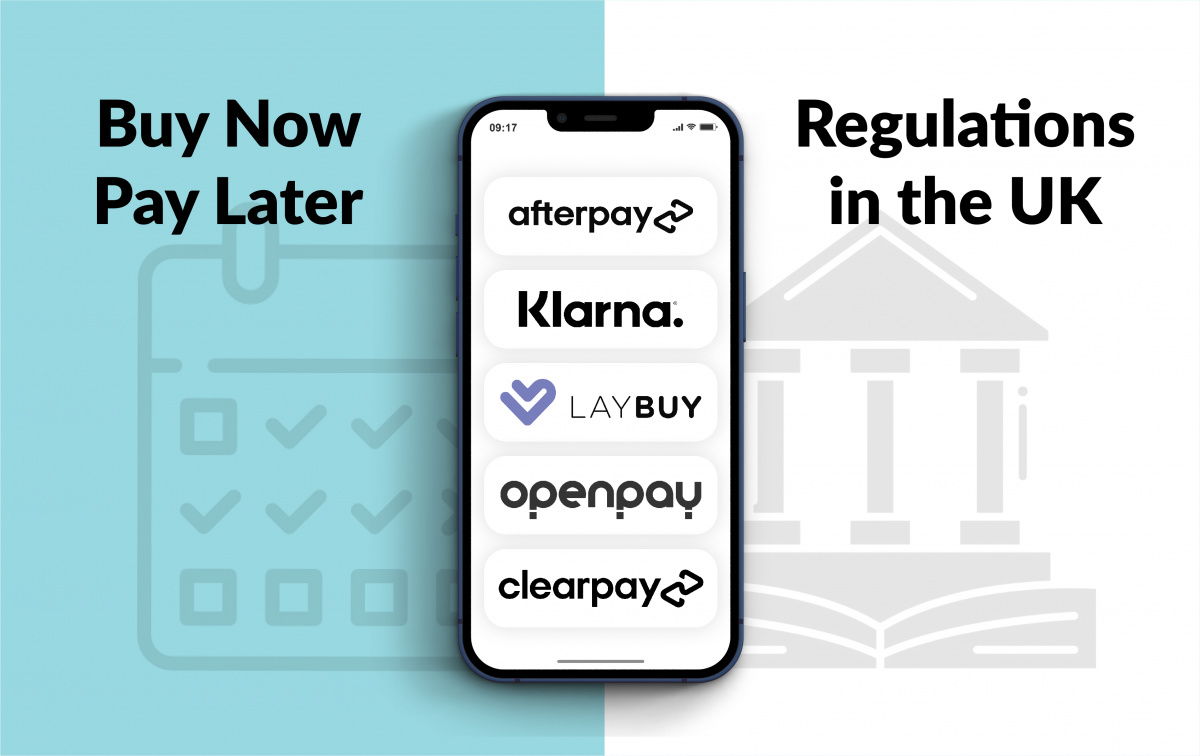BNPL & Regulations

- Sabrina Akramova, Editor & Content Manager at Financial IT
- 17.02.2022 10:00 am #fintech #payments #FCA #regulations

As we know, the UK Treasury closed public consultation on BNPL platforms on the 6th of January this year due to the rise of demand in Buy-Now-Pay-Later services within a legal framework. As BNPL platforms and mobile applications became widely used, especially those offered by such companies as Klarna, Clearpay, Laybuy, and Openpay, the UK is not the only country that aims to bring legal certainty and data protection to all customers.
To remind, BNPL is similar to traditional credit cards, which allows customers to make purchases and pay afterward with zero-interest rates. The main difference between credit cards and BNLP platforms is in the payment process, which is completed in equal installments within a specified period of time (4 months). To be precise, late fees, penalties, and increased interest rates are usually the result of late payment.
According to Woolard Review, the use of BNPL products skyrocketed in 2020 to £2.7 due to coronavirus COVID-19 outburst. This is expected to grow rapidly by 2024 as long as the number of merchants offering extended payment methods is exceeding tens of thousands.
How is BNPL regulated?
The bigger part of BNPL services is regulated by Financial Conduct Authority (FCA) under Consumer Credit Regulation (CCA), while unregulated BNPLs rely on Regulated Activities Order (RAO). Regardless of the regulation terms, all fintech companies must meet Consumer Protection Legislation, including Consumer Rights Act (CRA) 2015 for contracts signed from 1 October 2015, and Consumer Contract Regulations 1999 for those signed between 1 July 1995 and 30 September 2015.
The FCA's work is helping companies make conditions like contract cancellations and continual payment authority fairer and more understandable. Because of one of the clauses, Clearpay Laybuy and Openpay have agreed to reimburse late payment costs to clients in certain instances.
New changes firms have made
Clearpay, Klarna, Laybuy, and Openpay have all collaborated with FCA to address the issues and concerns regarding potential harm to consumers. As a result of a work completed by the Financial Conduct Authority, corporations have committed to modifying consumer contracts to make them fairer, easier to read, and more reflective of actual usage.
Representatives of FCA worried that one or more of the businesses' terms would not fulfill the CRA's fairness or transparency criteria (although, ultimately, only a court can decide a term's fairness or openness). The types of terms which may bring harm to consumers typically include the following:
- Consumer cancels the contract for purchases funded by BNPL service
- Firms terminate or suspend consumer’s accounts or restrict access to the platform
- Right of set-off terms
- Continuous payment authority terms
What should firms do now?
- All businesses, including those in this industry, must verify that their consumer contracts meet all applicable consumer protection laws. Firms should guarantee that their contracts comply with the Consumer Rights Act 2015 (CRA) and the Unfair Terms in Consumer Contracts Regulations 1999 for contracts carried into between 1 July 1995 and 30 September 2015.
- Another thing that the company needs to guarantee is that if a consumer withdraws an offer to enter a distance or off-premises contract, or cancels such a contract under regulation 29(1), any ancillary contracts will immediately end.
Advertising and marketing in BNPL
Even uncontrolled BNPLs are subject to certain marketing rules:
UK Advertising Codes, regulated by the Advertising Standards Authority (ASA) and the Committee of Advertising Practice (CAP). ASA stated in December 2020 that BNPL providers must ensure customers understand BNPL is credit, that all necessary information is provided, and that advertising does not indicate that BNPL is risk-free or suited for everybody. The ASA has ruled on BNPL ads.
These regulations require companies to give customers the information they need to make informed decisions, and not to omit or hide significant information that consumers require.
For ‘invitations or inducements to engage into a BNPL agreement, the government recommends that an FCA-authorized business issue or approve them to ensure they are ‘clear, fair, and not deceptive.
Conclusion
Although new proposals are definitely going to cool the BNPL market to some extent, they are likely to be accepted by the majority of fintechs and merchants. Undoubtedly, regulations are made to bring confidence and safety. However, real market changes and consequences are yet to be seen.





















